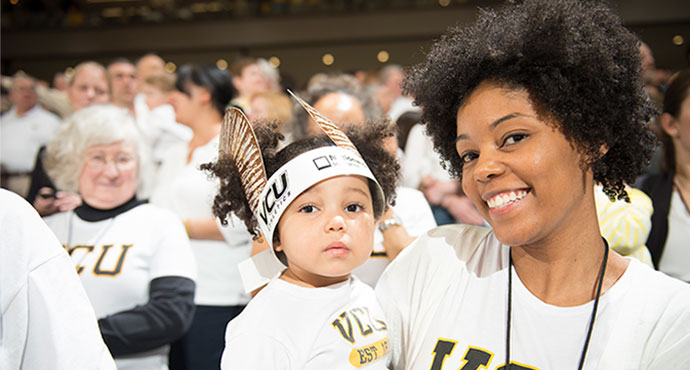The scene plays itself out several times a game. There comes a moment when an official’s whistle blows (or doesn’t blow) and the crowd erupts in indignation. Sometimes a flagrant (we think), uncalled foul sets us off. Other times the provocation is more contested—a missed 5-second violation, a blown out-of-bounds call, inconsistent foul reads. Whatever the perceived injustice, boos rumble through the crowd like thunder.
That’s my moment. I wait for the quiet after the outrage, then scream, “Win anyway, Rams!”
It’s my way of saying: “Adversity is a part of the game, deal with it.” The “win” part is a call to refocus on our objective. The “anyway” is a tacit acknowledgement of the injustice of a bad call. Together they build a bridge from an unfortunate blunder to a future triumph–the antidote to the poison of fruitless resistance and complaint.
It’s my way of saying: “Adversity is a part of the game, deal with it.” The “win” part is a call to refocus on our objective. The “anyway” is a tacit acknowledgement of the injustice of a bad call. Together they build a bridge from an unfortunate blunder to a future triumph–the antidote to the poison of fruitless resistance and complaint.
A win-anyway mindset works off the court, too. Sulking about the whiffed calls of life can undermine our success if we let it. So it’s important to absorb life’s blows and simultaneously transform them into something productive.
In “The Rise,” author Sarah Lewis illustrates this principle with a description of aikido, the martial art “of being thrown, falling, and standing up in a different, more stable place.” There are no kicks in aikido. Years of training teach its practitioners to relax when attacked, to go down and to rise stronger. “Aikido,” she writes, “embodies the idea that when we stop resisting something, we stop giving it power.”
Jack Clark, the long-time rugby coach of the University of California, Berkeley, put this notion of fortitude another way, during his recent visit to VCU. I sat with him at a basketball game, and he told me that his definition of mental toughness is simply the ability to move on to the next most important thing. Winners don’t expect to get a good break and they aren’t debilitated by bad ones. They consistently take what comes and do what’s next, he said. He should know; he’s won 22 national championships that way.
There will be struggles. How will you respond?
Had a crummy February? So what. Win anyway. Tear a page out of the calendar. Set it on fire. Blaze through March to the Final Four.
Bombed a project at work? So what. Win anyway. Ask for help. Work smarter. Earn your stripes.
You get the picture. When you encounter your next setback, just imagine the Siegel Center throngs cheering you on. Then do what the Rams do: Win.
Originally published on VCU’s Center for Sport Leadership Blog.


